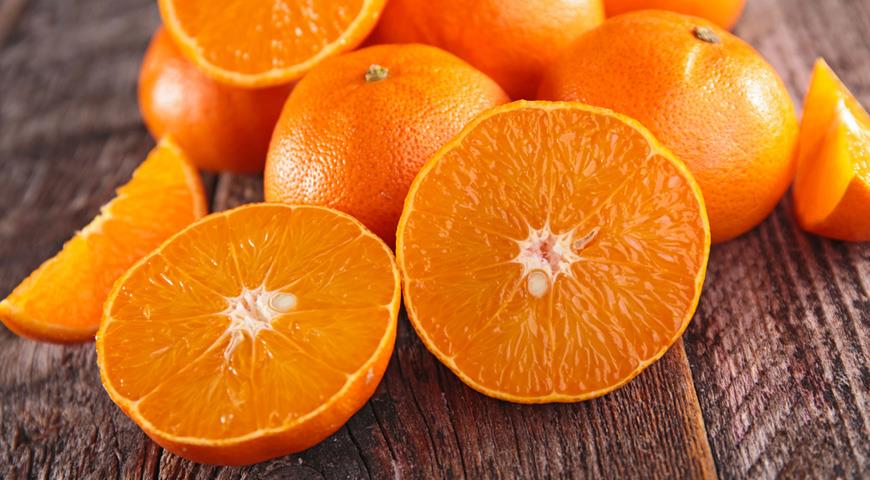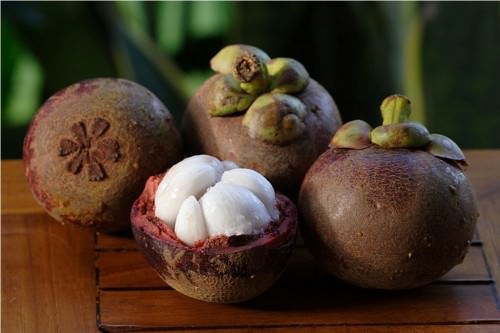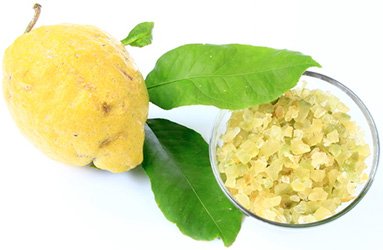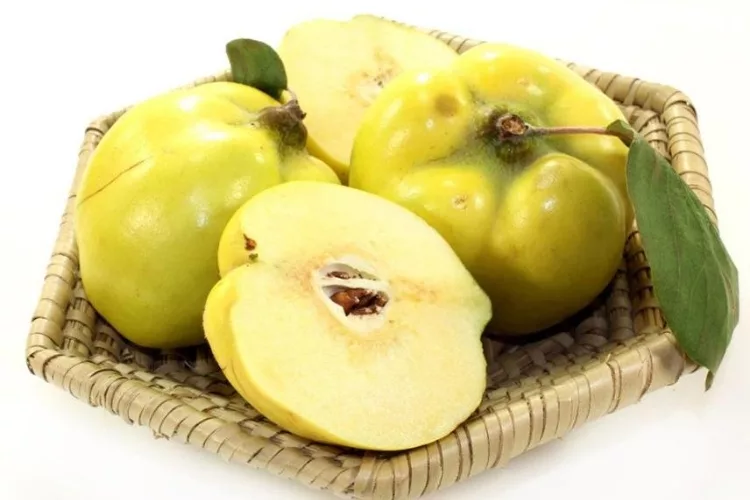13 Facts About Clementines
by Editorial Staff
Clementines are a hybrid of an orange and a mandarin, and this variety was bred by the French priest and breeder Father Clement, after whom the exotic fruit got its name. Externally, clementines are similar to tangerines with one difference - there are practically no seeds in tangerines, and there are a lot of them in clementines. However, the aromatic, juicy, and sweet pulp more than neutralizes this minor drawback.
- Bestseller No. 1
Contents
Facts About Clementines

- The clementine plant (Citrus Clementina) was first bred in 1902 by the French priest and breeder Brother Clement (Clement) Rodier. Its fruits resemble mandarin in shape but are sweeter.
- Clementine fruits are small, orange in color, round with a hard skin, tightly attached to the juicy pulp. Clementine is notable for its sweet taste and lack of seeds in the fruit.
- Clementines are rich in vitamin C and other nutrients. In some cases, there are contraindications: like other citrus fruits, clementines can be dangerous for people with diseases of the gastrointestinal tract. Clementines should not be consumed concurrently with drugs, since the substances they contain often increase the effect of drugs several times.
- Now there are more than a dozen different varieties of clementine, which differ in size, ripening season, and geography of growth.
- We will mention one of them - the Fine de Corse variety, which is grown in Corsica; there it is protected by the geographical appellation of origin - La clémentine de Corse with the status of IGP (Indication géographique protégée).
- Clementine fruits are consumed fresh and for the manufacture of tangerine juice and compote. They are used in fruit salads and desserts; they are candied and added to brandy; the juice is frozen for sorbet and mixed with drinks; liqueurs are made on clementines. As a spice, clementine is used to make sauces, fish, poultry, and rice dishes.
- The fruit rind is used as a substitute for orange peel in the preparation of various medicines, infusions, syrups, extracts, as well as in the food industry.
- To pick a good fruit, look at its skin. A dried, sluggish, or in places woody skin indicates that the fruit is lying for a long time or is overripe. Unripe clementine is heavy, the skin is almost all green, and is very difficult to peel off. A sign of poor quality clementine is the presence of mildew, brown spots, or areas of decay.
- It is very easy to determine the ripeness of clementines by the ratio of their size and weight since all ripe clementines always weigh less than they seem at first glance.
- Clementines are best preserved in a special compartment of the refrigerator, where they do not rot and do not dry out for up to a month. But even in this case, the fruits must be viewed regularly: if, before the vegetables are stored for storage, the process of decay has already begun in the fruits and they were spoiled, then a decrease in temperatures will not stop it.
- At room temperature, clementines deteriorate even faster, and in too warm a room they also dry out, losing not only useful properties but also their taste.
- The simple method of storing fruit in a plastic bag, so popular with most people, is actually bad: high humidity is created in the bag and the fruit suffocates.
- It is believed that the fruits on which the twig has survived stay fresh longer, but these are extremely rare on sale.
 Also Like
Also Like

10 Interesting Facts About Arugulas
Indau, eruka, rocket, sowing caterpillar – this plant has many names, but whatever you call it less useful for health, it does not become from this. Arugula has a pleasantly bitter flavor that can add a spicy taste to any dish. Many who have tried it once...

10 Interesting Facts About Asparagus
All over the world, spring is considered the season of asparagus, when the first young juicy shoots appear from the ground. In our country, you don’t even have to look for local asparagus in the markets – you need to grow it (and it doesn’t grow in one ye...

10 Interesting Facts About Broccoli
There is more vitamin C in broccoli cabbage than in lemon, A – almost as much as in carrots, and the rest of the trace elements are certainly not less than in related vegetables of the cabbage family. It should be treated with caution by those who have in...

10 Interesting Facts About Cauliflowers
Cauliflower is superior to all other varieties in taste and nutritional content. What do you know about Cauliflowers? We will tell you 10 interesting facts about him, and if you have something to add, be sure to leave your comment under this post! Caulifl...

10 Interesting Facts About Dills
Many people actively use dill when preparing a wide variety of dishes; this seasoning is considered truly universal. What do you know about Dills? We will tell you 10 interesting facts about him, and if you have something to add, be sure to leave your com...

10 Interesting Facts About Fennels
Not the most frequent guest in our kitchens, but his every appearance should be noted. What do you know about Fennels? We will tell you 10 interesting facts about him, and if you have something to add, be sure to leave your comment under this post! The ho...

10 Interesting Facts About Garlic
Many doctors recommend eating garlic, in the absence of contraindications, of course. This is an extremely useful product, notable for the fact that when cooked or dried, it retains a significant proportion of useful substances. What do you know about Gar...

10 Interesting Facts About Greens
We know vegetables and greens are good for you. But what exactly is their strength and why are they so important in the daily diet? After examining the opinions of people leading a healthy lifestyle, we are a selection of 10 interesting facts. What do you...

10 Interesting Facts About Lettuce
Lettuce is known all over the world and has been actively used since the 20th century. People can grow lettuce on their own to consume its leaves or stump. It should be noted that lettuce varieties such as Roman are produced mainly in Europe (in the Medit...

10 Interesting Facts About Parsley
Even the usual seasoning can harbor a lot of unusual things. What do you know about Parsley? We will tell you 10 interesting facts about him, and if you have something to add, be sure to leave your comment under this post! Did you know that there are curl...

10 Interesting Facts About Pumpkins
Orange, juicy, bright, tasty, useful! Pumpkin is a real symbol of autumn. And what do you know about pumpkins? We will tell you 10 interesting facts about pumpkins, and if you have something to add, be sure to leave a comment under this post! In fact, the...

12 Interesting Facts About Daikon
Due to the high content of vitamins, daikon strengthens the immune system, and its phytoncides kill microbes. Daikon removes excess fluid from the body, cleanses the liver and kidneys, stimulates the stomach and intestines, and is even able to dissolve ga...

12 Interesting Facts About Mangosteen
We have already written about dragon fruit – one of the most popular fruits in Southeast Asia, especially in Thailand. We decided to continue the series of notes dedicated to fruits, which can be seen in abundance on Thai food stalls. The turn of mangoste...

12 Interesting Facts About Mustard
Mustard is an annual plant that grows up to 60 cm in height. The bright yellow flowers form seed pods, each containing about 6 seeds. What do you know about Mustard? We will tell you 12 interesting facts about him, and if you have something to add, be sur...

Citron is a rare fruit that belongs to the citrus family. At the moment, it grows only in some rather limited areas. Theophrastus, Virgil, Martial also spoke about this fruit, it is also mentioned in the Bible. The history of the origin of this citrus tre...

Guava is an evergreen plant of the Myrtle family, which includes about 100 species. This plant is native to the tropics of South America, but today it is grown in other parts of the world. The guava fruit is widely used for making desserts. Guava fruits a...

13 Interesting Facts About Beans
Many dishes contain beans, and in some countries, they are an integral part of the national cuisine, for example, in Mexico. What do you know about Beans? We will tell you 13 interesting facts about him, and if you have something to add, be sure to leave ...

14 Fascinating Facts About Chaenomeles
Japanese quince, or Japanese Chaenomeles, is a representative of the Plum subfamily, the Pink family, of the order Rosaceae. Japanese quince is small in height (grows from 1.5 to 4 m) with falling leaves (rarely semi-evergreen) bush or low tree, which is ...

14 Interesting Facts About Basil
Basil is considered an Indian spice and is used as a condiment in many cuisines around the world. What do you know about basil? We will tell you 14 interesting facts about him, and if you have something to add, be sure to leave your comment under this pos...

14 Spectacular Facts About Nectarine
There are many exotic fruits in the world, however, due to its wide distribution, nectarine can hardly be called such. If earlier it was known only in China, now it is being cultivated even in Cyprus. The name of the fruit comes from the drink that the an...
Comments for "13 Facts About Clementines"
 |
 |
 |
 |
Get FREE Recipe Gifts now. Or latest free cooktops from our best collections.
Disable Ad block to get all the secrets. Once done, hit any button below
 |
 |
 |
 |
